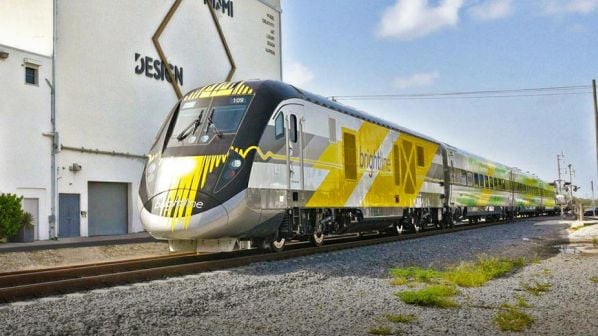Advised by Skadden Arps Slate Meagher & Flom LLP, Virgin Trains USA planned to offer 28.3 million shares priced between $US 17 and $US 19, which would have raised $US 510m at the midpoint of that range and established a market capitalisation of roughly $US 3.2bn, according to US Securities and Exchange Commission filings.
“As we explored a public offering, a number of alternative financing sources became available that allow us to keep the company private and meet our growth strategies,” says Virgin Trains senior vice president, Mr Ben Porritt.
The IPO proceeds, along with money raised from debt financing and private placements, were meant to expand operations into markets where travellers are seeking medium-distance connections “too long to drive” and ‘“too short to fly.”
Virgin Trains USA operates the former Brightline passenger rail service connecting Miami and West Palm Beach, and has plans to connect with Orlando and Tampa. The company is also looking to develop a high-speed rail connecting California with Las Vegas and expand elsewhere in North America.
Virgin Trains USA’s main stockholders are private equity funds affiliated with Fortress Investment Group, which was not planning on selling any shares in the IPO. Barclays, JP Morgan and Morgan Stanley, represented by Davis Polk & Wardwell, were the lead underwriters assigned to the Virgin Trains USA IPO.
According to a published report, one close follower of the company said Virgin Trains USA had also concluded that it could not achieve the valuation it sought in an IPO: “It was a combination of [investor] appetite and people saying they’d be interested if it was private.” Virgin Group was set to emerge from the IPO with no more than a 2% stake, with most of the stock in the control of funds of Fortress, the private equity group whose co-founder, Mr Wes Edens, chairs Virgin Trains USA.
SEC listing documents showed that Virgin Trains has been in separate discussions about raising up to $US 2.3bn in debt, and noted that its plans to expand are contingent on it having the funds to acquire certain land rights.
The company must raise more than $US 1bn in construction financing by June 2019 to avoid losing a deal with the Greater Orlando Aviation Authority, which operates Orlando International Airport, that would provide land for a station, train storage facility and additional trackage. The company has said it plans to apply for an extension if the deadline is not met, but cautioned that none might be forthcoming.

